The U.S. & Iran's Reverberating War Drums Part 2
Post Coup - Present Day
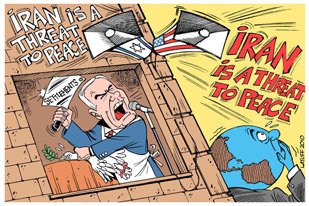
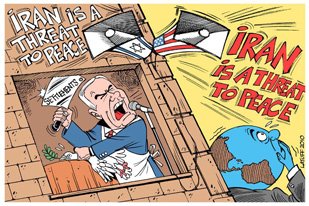 Three weeks following the coup in 1953, the United States had helped reinstall Reza Shah and gave Iran 68 million in economic aid with an additional 1.2 billion over the next decade. During this time from Reza Shah's reinstallment in 1953 until 1979, Iran was considered one of the closest allies of the United States. President Lydon B. Johnson even invited Reza Shah to the Whitehouse in 1967.
Three weeks following the coup in 1953, the United States had helped reinstall Reza Shah and gave Iran 68 million in economic aid with an additional 1.2 billion over the next decade. During this time from Reza Shah's reinstallment in 1953 until 1979, Iran was considered one of the closest allies of the United States. President Lydon B. Johnson even invited Reza Shah to the Whitehouse in 1967.
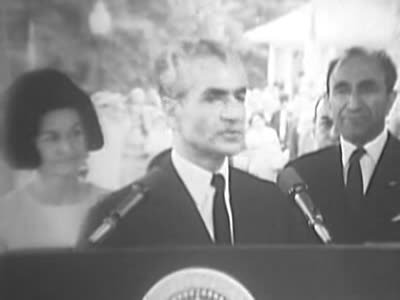
The United States played a key role in funding the Shah's brutal secret police known as SAVAK that terrorize citizens who showed any form of dissent with imprisonment, torture and even death. In March 1955, the Army colonel was "replaced with a more permanent team of five career CIA officers who were specialists in covert operations, intelligence analysis, and counterintelligence, including Major General Herbert Norman Schwarzkopf who "trained virtually all of the first generation of SAVAK personnel." In 1956 this agency was reorganized and given the name Sazeman-e Ettela'at va Amniyat-e Keshvar (SAVAK).

Reza Shah's modernization of Iran and the closeness he had with Western powers angered the Islamic population particularly, Islamic conservatives. This is when discontent within Iran started to grow for their American friends, it was because Reza Shah was a brutal oppressive dictator and the Americans were supporting his oppressive dictatorship.
This coup to overthrow the democratically elected Mossadeq and instill a dissent suffocating dictator in Reza Shah perpetuated "a haunting and terrible legacy" according to Secretary of State Madeleine Albright who referred to the coup and post-coup years in 2000 as a "setback for democratic government" in Iran. Supreme Leader of Iran Ali Khamenei called the omission "deceitful" and stated it "did not even include an apology."
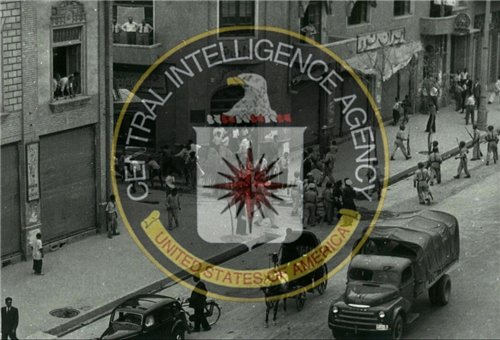
The whole discussion about Iran's nuclear program is convoluted. How many Americans know that we are the ones who gave Iran its first nuclear reactor in 1957? Or that ten years later the U.S. would supply Iran enriched uranium. Iran's nuclear program was launched in 1957 as part of the Atoms for Peace program and was spearheaded by the United States.
In the 1950's leading up tot he early 70's Iran's oil production began to skyrocket. This weakened the United States politically among Iranians who felt the U.S. was bolstering a dictator while sacrificing the human rights of Iranians for oil profits. Iranian citizens at the time were very aware of what was happening in their country and Iranians believed the U.S. was "the chief architect and instructor of the regime."
Regardless of how Iranians felt about the U.S. Iranian oil revenues kept the U.S and Iran close allies until the Iranian Revolution in 1979. Before the Revolution relations between Washington D.C. and Tehran were never better Reza Shah donated money to UCLA and George Washington University to create Iran study programs. Not to mention multiple state visits by Mohammed Reza Pahlavi during these years with presidents from Truman to Nixon.
In 1978 Jimmy Carter stated: "under the Shah’s brilliant leadership Iran is an island of stability in one of the most troublesome regions of the world. There is no other state figure whom I could appreciate and like more." This angered anti-Shah groups within Iran. Historian Nikki Keddie noted that the Carter Administration had "no clear policy" towards Iran.
The Revolution, 1979
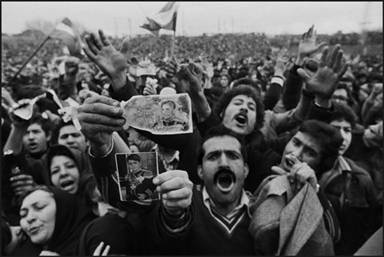
Just six month before the Iranian Revolution began the C.I.A. stated that "Iran is not in a revolutionary or even a 'prerevolutionary' situation." A lot of people aren't aware that a book titled (Countercoup) by former CIA agent Kermit Roosevelt Jr on the coup in 1953 which was translated into Persian.
Iranian citizens who began to read the translated version of Mr. Roosevelt Jr's book started to become paranoid about the power of U.S., in particular, the power of the C.I.A to effectively change and rewrite domestic policy through covert unauthorized operations within Iran.
On November 4th, 1978 advisor to the president Zbigniew Brzezinski called the Shah to inform him that America would "back him to the hilt." This was disingenuous and misleading to Reza Shah as many in the Carter administration believed the Iranian Revolution was "unstoppable." Secretary of the Treasury W. Michael Blumenthal famously told president Carter "you got a zombie out there" referring to the Shah.
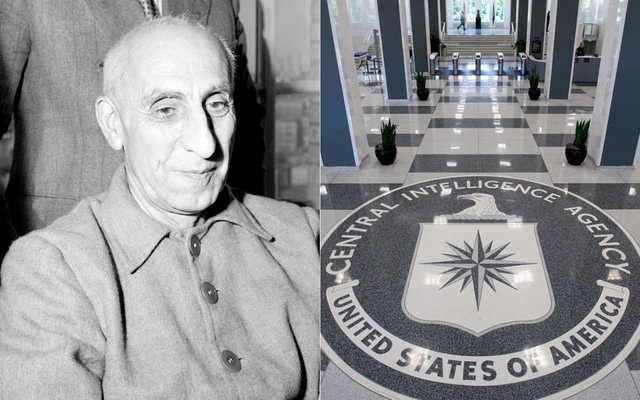
The Intelligence community in the United States "consistently underestimated the magnitude and long-term implications of this unrest." The western puppet Reza Shah was replaced by Supreme Leader Ayatollah Ruhollah Khomeini. Many of the young revolutionaries who overtook the Embassy were pro-Khomeini protesters and supported his visions of a theocratic government in Iran.
The United States quickly labeled Khomeini "anti-American" just as Khomeini referred to the United States as "the great Satan." There comes a point where we have to ask ourselves who is right? For over 20 years the United States had nothing but a negative impact on the citizens of Iran whether it be by pillaging their oil revenues or installing a brutal dictator who ruled with an iron fist and crushed any dissenting views.

The Iranian people have every right to not trust, or even loathe the United States government. Unless you wouldn't be offended or angry in any way if Iranian intelligence officers sparked a coup in America and set up their own theocratic state, you would be angry, wouldn't you? If the Iranian government imposed their way of life upon us and had their secret police force that tortured and killed any dissenters, how would you feel?
Today we are repeatedly told that Iran exports terrorism and interferes with the operations of other countries via their "terroristic proxies." To anyone who actually believes this premise, I would ask you if it is Iran that is bombing 11 sovereign nations right now? Does the Revolutionary Guard have commandos stationed on United States border? Is the Iranian government bolstering protest in America while leveling sanctions that send the U.S. economy into a tailspin?
There are a lot of false narratives about Iran's nuclear program and with Jon Bolton and Mike Pompeo being decision makers on U.S. policy right now, the world has to be aware. These are two men who have not hidden their feelings towards Iran and both have openly called for regime change.
Talking heads on legacy media will speak of "regime change" as if it doesn't involve hardship for the citizens of the country that America is imposing their "democratic" will on. The truth is, Iran has never enriched uranium to weapons grade. Despite Benjamin Netanyahu's cute drawing on the United Nations floor Iran uses their nuclear program for energy and has never tried to make nuclear weapons.
Israel, on the other hand, is a country that does have nuclear weapons, nuclear weapons the international community has never inspected. We will continue to tiptoe through the propaganda tulips as war drums reverberate off the walls of the echo chambers the-powers-that-be secretly craft in the shadows.
Written by Joziah Thayer - Twitter @dapeaple - wedacoalition.org
Congratulations @wedacoalition! You have completed the following achievement on Steemit and have been rewarded with new badge(s) :
Click on the badge to view your Board of Honor.
If you no longer want to receive notifications, reply to this comment with the word
STOPDo not miss the last post from @steemitboard:
SteemitBoard and the Veterans on Steemit - The First Community Badge.